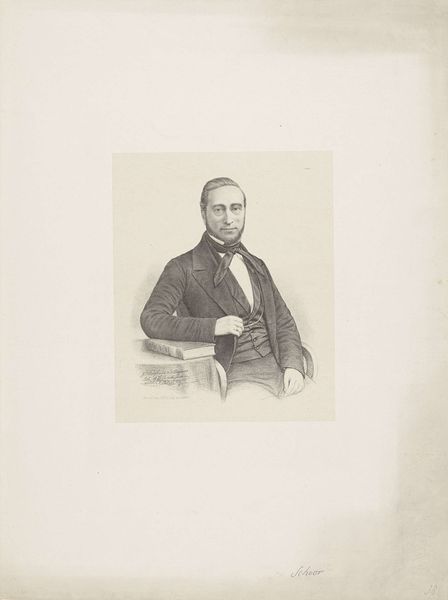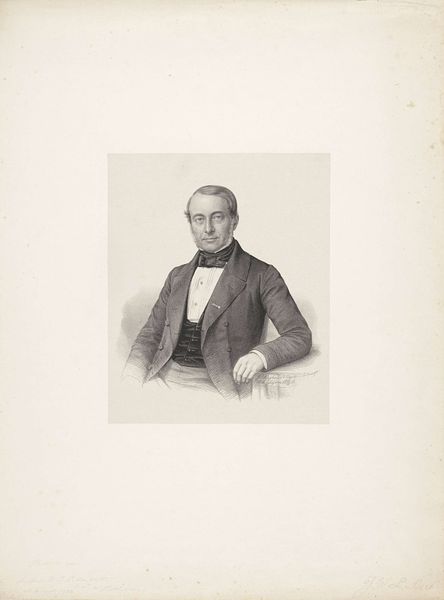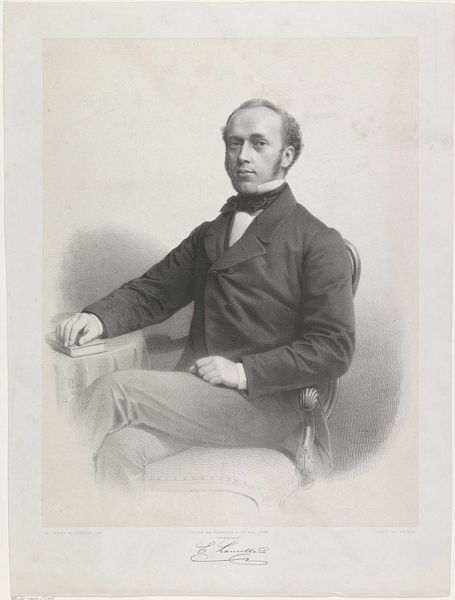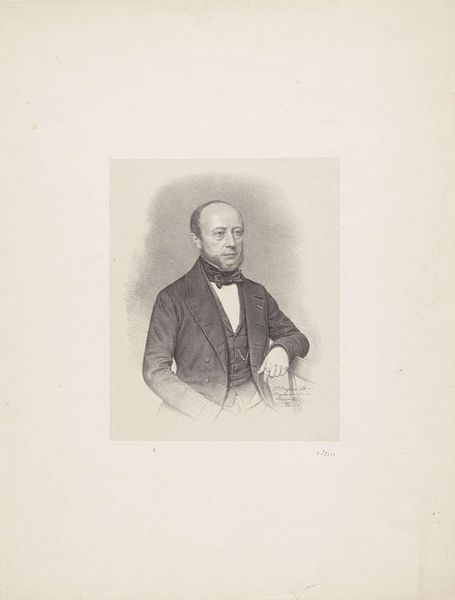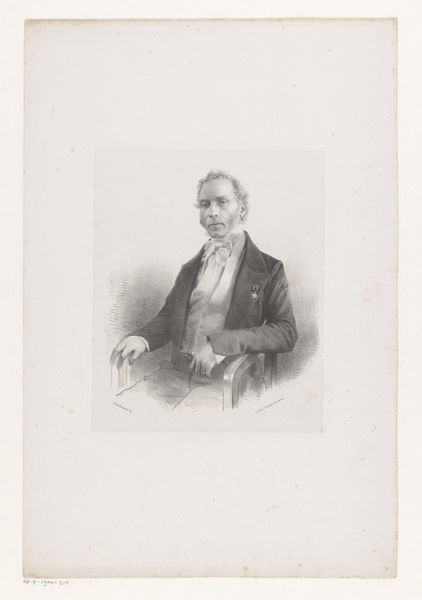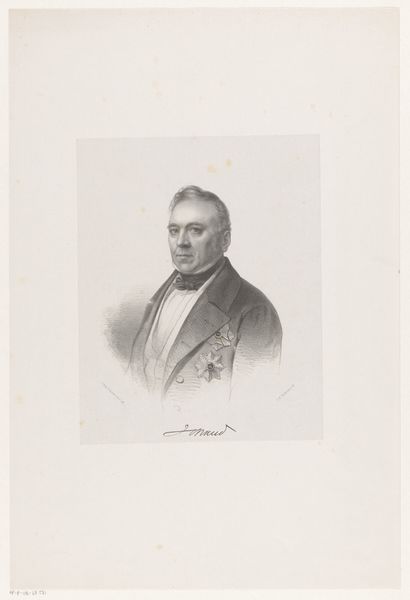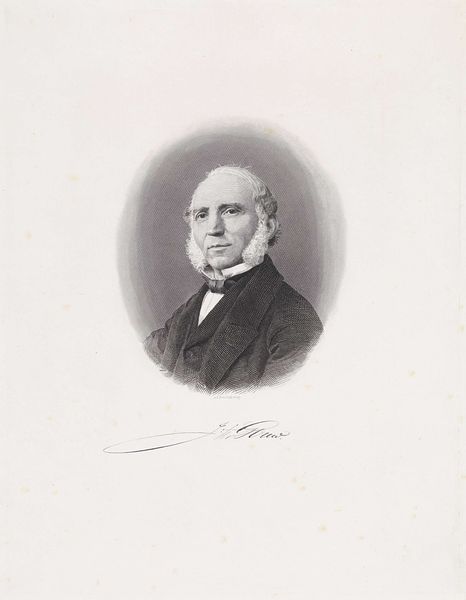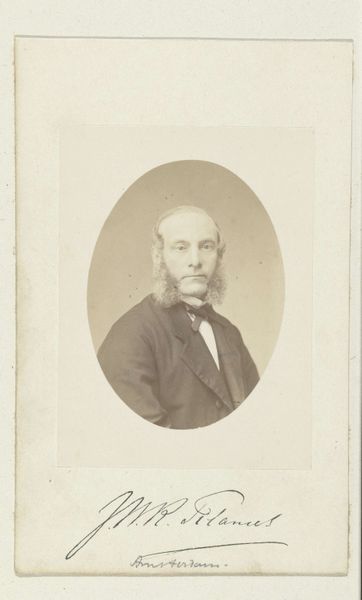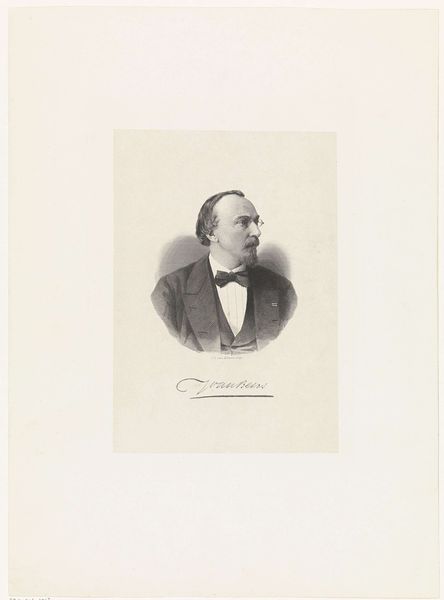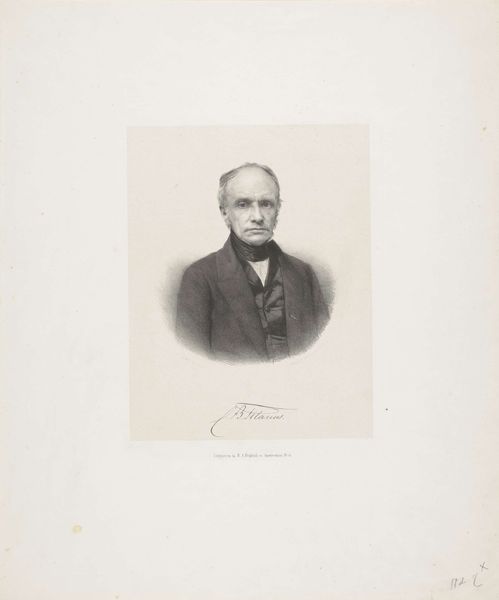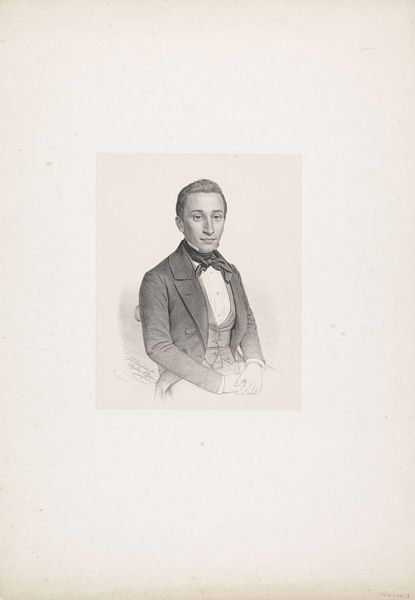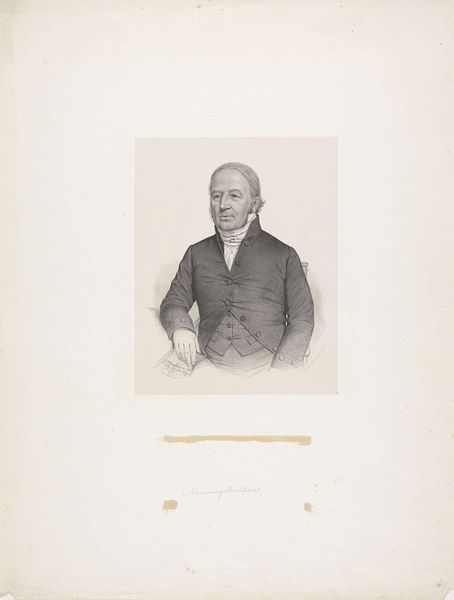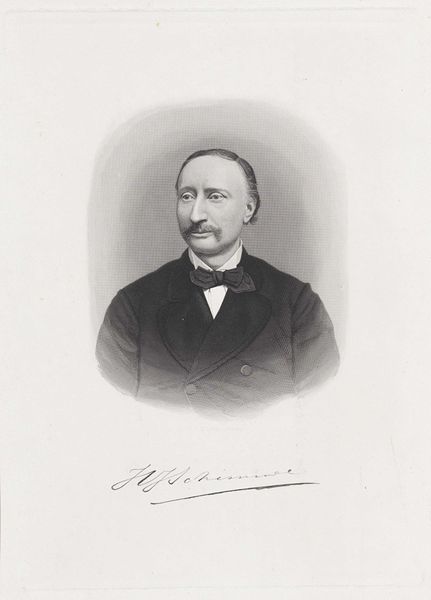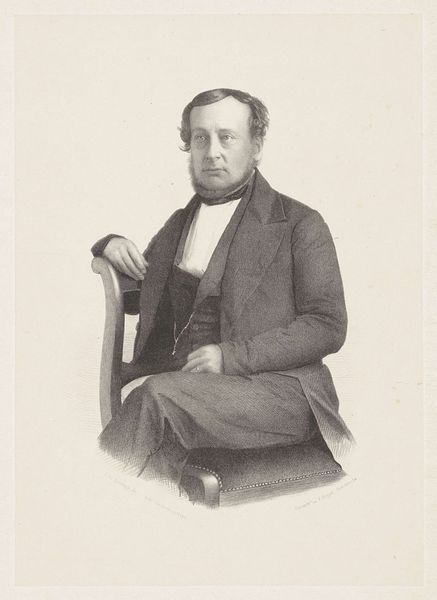
drawing, print, engraving
#
portrait
#
drawing
#
16_19th-century
# print
#
archive photography
#
historical photography
#
academic-art
#
engraving
#
realism
Dimensions: height 188 mm, width 126 mm
Copyright: Rijks Museum: Open Domain
Dirk Jurriaan Sluyter created this portrait of Ludwig Carl Lentz using lithography, a printmaking process that democratized image production in the 19th century. Unlike traditional engraving, which required laborious carving into metal, lithography allowed artists to draw directly onto a stone surface with a greasy crayon. The stone was then treated with chemicals, so that only the drawn areas would hold ink. This print, with its soft gradations of tone, shows the impact of this technique. Sluyter captured a sense of Lentz’s presence with remarkable efficiency. Lithography's rise coincided with the growth of industrial capitalism, providing a means for mass-producing images for newspapers, advertisements, and portraits like this one. Consider the labor involved: from quarrying the limestone, to the artist's hand, to the printing press churning out copies. Lithography embodies the spirit of its time, blurring the lines between art, industry, and social documentation.
Comments
No comments
Be the first to comment and join the conversation on the ultimate creative platform.
